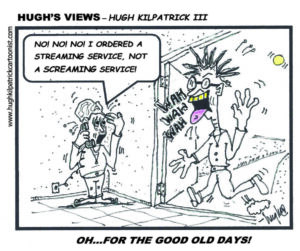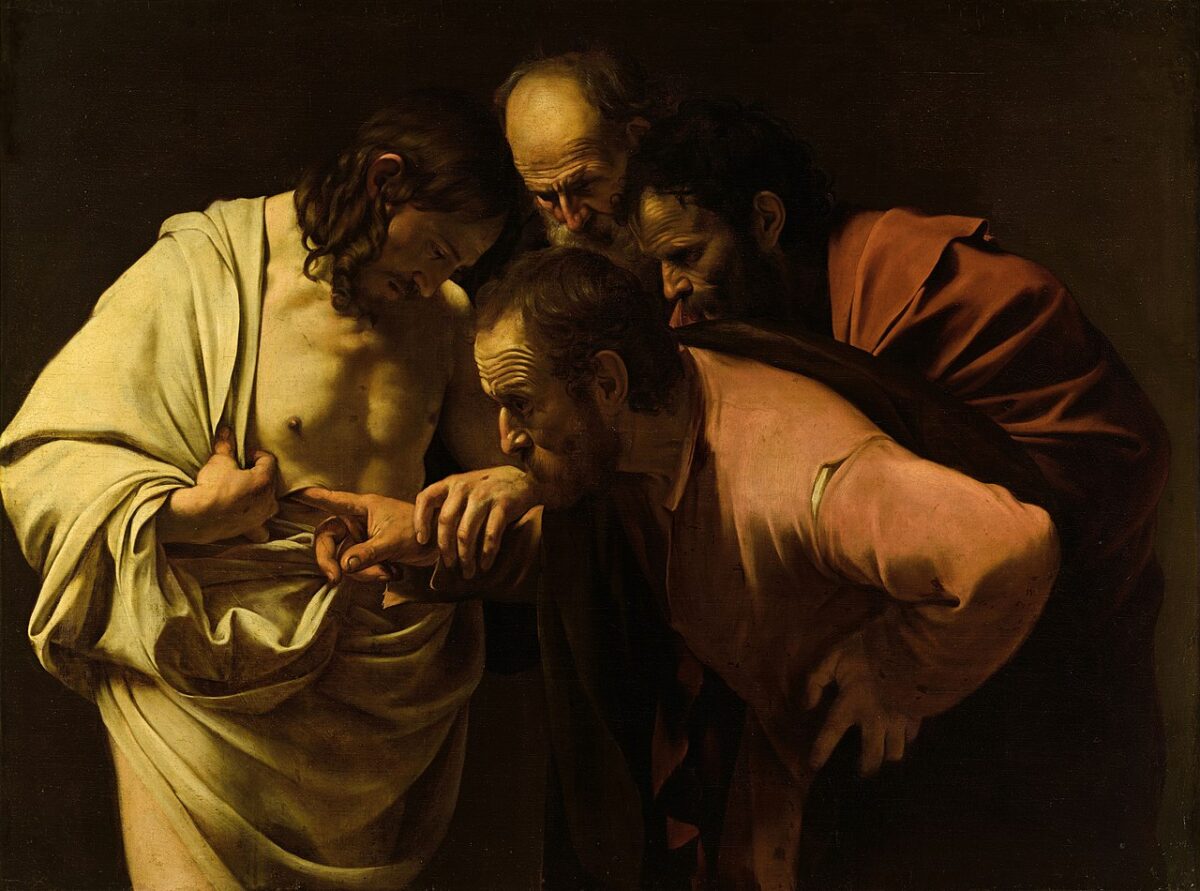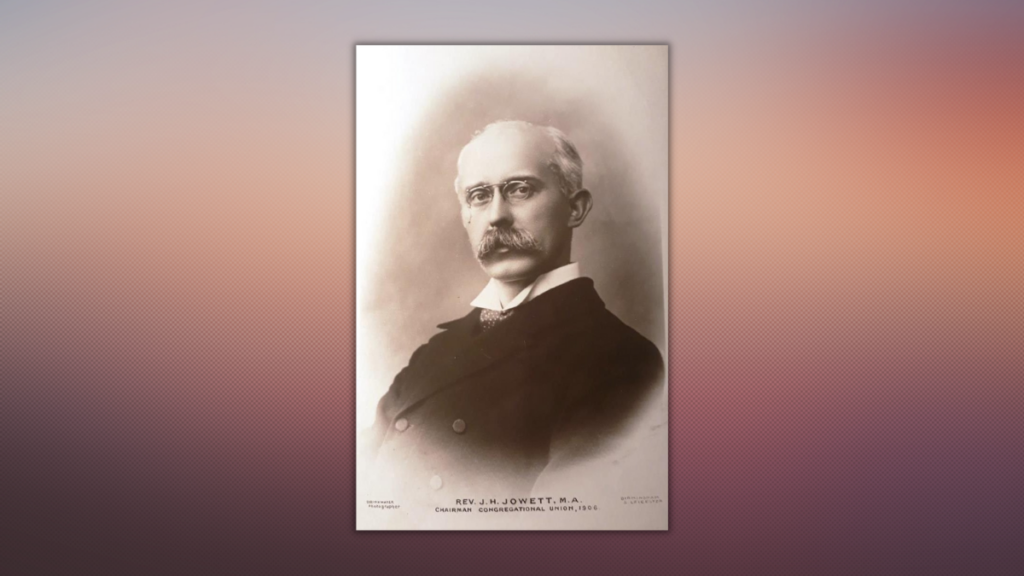By Robert Hanks
Mobile, Alabama
Before he died, my father had suffered severe pain for decades despite an abundance of prayers for his healing. This and similar experiences led me to question the value of prayer.
Any time I hear of mass casualties, the age-old question of “why” troubles me once again.
When I have read books by accomplished Bible scholars who call into question the truthfulness of Scripture, I feel unsure about who or what to believe.
If doubts have been a part of your walk with God, take comfort in knowing you are not alone.
The reality is that religious doubt is a common experience.
According to a 2022 Barna survey, 52% of American teens and adults reported experiencing doubts about their religious beliefs within the previous few years. In the same survey, exactly half of those who self-identified as Christian (having a Christian background or experience) reported having gone through a prolonged period of doubt about their faith.
Hesitant to acknowledge
Christians are often hesitant to acknowledge their doubts, seeing them as a sign that their faith does not measure up and fearing the reactions of others to expressing them.
Certainly, there are biblical references that might explain this negative view of doubt. For example, when James wrote about asking for wisdom, he asserted it would be given only to those who believed: “For the doubter is like the surging sea, driven and tossed by the wind. That person should not expect to receive anything from the Lord, being double-minded and unstable in all his ways” (James 1:6–8).
Although James paints a decidedly negative view of doubt, as we look at other Scriptures, we find many examples of those who experienced doubt and yet were among those with remarkable faith.
One notable example is John the Baptist. Recall what Jesus said of him: “Truly I tell you, among those born of women no one greater than John the Baptist has appeared, but the least in the kingdom of heaven is greater than he” (Matt. 11:11).
While John languished in prison with little or no hope of being released, we are told that even he began to have doubts and sent his own disciples to Jesus to inquire about whether He really was the Messiah.
Jesus understands
Upon hearing John’s inquiry, Jesus did not condemn him but simply said to the John’s disciples: “Go and report to John what you have seen and heard: The blind receive their sight, the lame walk, those with leprosy are cleansed, the deaf hear, the dead are raised and the poor are told the good news” (Luke 7:22).
Jesus conveyed to John evidence of His divinity as a way of helping him overcome his doubts.
Thomas’ experience
Consider the disciple Thomas, who told his fellow disciples he would not believe in Christ’s resurrection unless he could personally see Jesus and inspect his body for marks of the crucifixion. A week later Jesus gave Thomas the opportunity to do just that and then said to him, “Don’t be faithless, but believe” (John 20:27).
Thomas doubted even though he had been with Jesus for years, had seen him perform healing miracles, raise the dead, walk on water and feed thousands with a few loaves of bread and fishes. As with John the Baptist, Jesus did not criticize or reject Thomas for his lack of faith.
Holding on to a faith completely free of doubt at any time goes beyond what most of us can do. That said, we can still be effective in God’s service.
Consider Mother Teresa, arguably one of the most devoted servants of God in contemporary times. It is widely known that she struggled with long periods of doubt and a sense of being abandoned by God.
Let us, in our own journey of faith, accept doubt as an uninvited companion while still being true to our calling to honor Christ with our lives and share His love with those around us.
EDITOR’S NOTE — Robert Hanks, Ed.D., is a former licensed professional counselor. He and his wife, Raye, are members of Spring Hill Baptist Church in Mobile. .
Letters to the Editor
Thank you for your challenging Rashional Thoughts editorial in the Aug. 31 edition about churches finding and fulfilling ways to help our students and schools.
These students are our future. What better investment can we make than to help them succeed in school and in life? In addition, they should see Jesus in us.
Teresa Noell
Retired educator
I had the privilege to serve on the original task force charged with implementation of the Alabama Literacy Act, and I still serve as a consultant. I am very pleased to see the advances in early literacy that have occurred since the act was passed.
It is gratifying to hear of others beyond the ranks of professional educators champion literacy.
Your encouragement and suggestions in the Aug. 31 Rashional Thoughts are exactly the sort of ways we can all join hands to further this important initiative.
As more folks team up to support early literacy, I believe improvements in reading will rise from incremental to exponential.
Tommy Turner
Dean emeritus, education, JSU
A gift from a child to a grandpa
One Halloween, a child appeared on our porch during Trick-or-Treat time. I was not really paying attention — he was just another child coming up on the porch for some candy. But not really, in this case!
Our Halloween bucket was almost full of candy, waiting for the next musical “Trick or Treat” or “Happy Halloween.”
Not paying much attention, I reached into the bucket to find a candy bar and looked up.
There, standing right in front of me, was a young boy, about 10–12 years old. I glanced at his face and saw a look that was different from the other children. I looked again and not knowing what to do, dropped a piece of candy into his basket and said, “Thank you.”
I don’t recall what he did, and he didn’t explain his actions. He extended his hand holding a $1 bill toward me and said, “This is for you. Thank you!” And with a wonderful smile on his face, he turned and walked away.
I seriously doubt this grandpa will ever forget the strength and beauty of that young boy.
Who had been teaching him about giving to others? Who taught him to bless other folks with an unexpected gift from his heart?
Obviously, we do not know. My first thought was, “Did his Sunday School teacher teach him about sharing the joy of giving with others?”
My second thought was, “Were his parents involved in teaching him about the joy of giving and the blessings of sharing our resources with others?”
I do not know about who or what or why, but I do know that for one short moment, a young lad stepped up on my porch and blessed me by his gift of love, joy and happiness.
Dick Toya
Birmingham, Ala.
“God never withholds from His child that which His love and wisdom call good. God’s refusals are always merciful — ‘severe mercies’ at times but mercies all the same. God never denies us our heart’s desire except to give us something better.”
Elisabeth Elliot
God is not dope.
God is just.
God is love.
God is holy.
God is wise.
God is great.
God is good.
God is strong.
God is glorious.
God is merciful.
God is sovereign.
God is awesome.
God is magnificent.
@JoshBuice
X (formerly Twitter)
The moment that our drive for our children’s academic, athletic and occupational success exceeds our pursuit of their holiness is the moment we have failed them as parents.
@DanielRitchie
X (formerly Twitter)
If we do not believe the biblical truth about forgiveness, we will be bound in feelings of continued guilt, shame, doubt, mistrust, inferiority, and some sense of isolation and despair.
Morris Murray Jr.
Jasper, Ala.
At times God would show me the next step to take without revealing the complete plan. Yet, to be honest, periods occurred where I wanted to see the entire picture before I took the now step I knew God was calling me to take. However, I have learned a very important truth: Obedience to God’s now step will always lead to God’s next step. A pastor once stated the following: “One of the greatest things God will ever ask you to do is the last thing He asked you to do.”
Remember, whatever step God is prodding you to take, make sure you take it. For again: Obedience to God’s now step will always lead to God’s next step.
O’Shea Lowery
Entrusted Hope Ministries
Pastor, whether you preach to a packed sanctuary … a nearly empty sanctuary or somewhere in between, remember your identity isn’t in how many people are there to hear you preach, but in the still risen King you preach.
@mhenslee
X (formerly Twitter)
“Unplugging and resting are essential for mental and physical restoration. The older I get, the more convinced I am that if we fail to practice Sabbath rest intentionally, our bodies will take it for us by means of breaking down. I’d rather practice Sabbath rest at home than in a hospital bed. If we don’t unplug and refresh, we will cease being fruitful for the Master,” said Doug Wilson, executive director of the Center for Christian Calling at the University of Mobile and teaching pastor of Moffett Road Baptist Church in Mobile.
“Where His (Jesus’) rule and reign is allowed, humans thrive. Where He is not allowed to be King, there is brokenness and suffering.” —@CampbellLino
@AshleyUnzicker
X (formerly Twitter)
“Remember, each time a church member or leader talks to a community member, you have the potential to discover what the unchurched thinks about church,” said Mark MacDonald, church branding strategist and author of “Be Known for Something.”
Circumstances don’t alter the call. I’d rather die in the will of God than live outside His will even for one minute. For me, Christianity is lived in practice, not in theory. #ArthurBlessitt
@MichaelCatt
X (formerly Twitter)







Share with others: